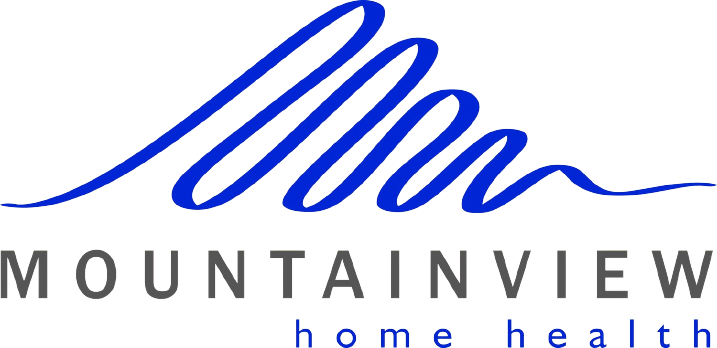Introduction;
A certain Speech-Language Pathologist (SLP) in USA shared professional and recreational experiences from one of her travel logs in the past year.
Summarized details are imbedded in the following month by month narrative which has proven helpful for numerous professionals already rendering their services in this sector along with newcomers who are in search of a pivotal career in this particular line of work.
Cold January;
While traveling to work in rural western Massachusetts, snow is falling and the roads are slick. Although the weather is gloomy, spending the holidays close to my family on the East Coast is lovely. As the sole SLP for two skilled care facilities, I see 8–14 patients every day who require assistance with their speech, language, cognition, and swallowing. To manage the caseload between two buildings can be demanding and difficult.
A smaller, 80-bed long-term care institution that mostly accommodates dementia patients is one of the buildings I cover. The other building receives many rehab patients and includes a designated 30-bed transitional-care unit. Since their rural location makes it difficult to recruit doctors for permanent roles, these institutions are constantly in need of traveling therapists. There aren't many resources available at the facility for speech therapy. Thanks to my iPad, I can access all of my apps wherever I go. Due to the wide range of therapy stimuli available, the Language Therapy 4-in-1 app for aphasia is incredibly helpful. The app's vibrant images and interactive features are a big hit with the patients.
Not So Cold February;
It's time to hop on a jet and head south! The flexibility to take lengthy vacations between contracts is one of the main benefits of working as a traveling therapist, provided your budget is sound. I've finished my stay in western Massachusetts and am leaving for a two-month break. You have the freedom to work while traveling at your own discretion. Traveling and studying Spanish in Costa Rica, Panama, Mexico City, and Playa del Carmen will take up the most of the ensuing six weeks.
Early March;
My recruiter's phone rings, and she answers. He has wonderful news for me; my California license application from two months ago was accepted! Every state where SLPs practice requires them to hold a state license, and each state has its own licensing procedures and standards. Maintaining standards and applying for additional licenses can be difficult and time-consuming. I now request that my recruiter get in touch with me if any acute or inpatient rehab opportunity with a late March or early April start date becomes available in California. Jobs in travel therapy can come and go very rapidly, so if you don't move swiftly, you might lose out on an opportunity.
Mid-March;
At a Level I trauma center in Fresno, California, a position has become available at an inpatient rehab facility. I grant my recruiter verbal permission to submit my employment application. The facility likes my resume and wants to have a phone interview, he reports the following day. I ask a lot of questions during the phone interview, including those regarding the speech pathology team, the job demands, the patient caseload, and the need for a traveler.
The facility typically wants to know your decision regarding a job offer within 24 hours of a phone interview. I inform my recruiter that I will accept the position because it is an excellent fit. It's a match since the facility feels the same way about me! In order to start working the first week of April, my recruiter and I agree on a salary plan and sign a contract.
Early April;
It's time to take off once more! This time, I'll be traveling by plane from my East Coast home to California. I fly to California, pick up a rental car, and settle into my interim residence. If you meet the requirements to maintain a residence at home while you travel as a therapist, you may be eligible to receive compensated housing while on assignment or tax-free housing stipends.
I decide to accept a tax-free housing allowance and look for temporary lodgings on my own. I'm residing in a home owned by a traveling nurse who is on her own travel assignment for this assignment. My roommate, a resident of Fresno, exposes me to all the exciting locations in the city. I still get the shakes after my first day at work. The start of this first day is excellent! An excellent group of four SLPs work together. The majority of the 30 patients in the inpatient rehab center had strokes or brain injuries. There are some younger individuals who have experienced trauma that necessitated the use of a PEG tube for feeding or a tracheostomy tube for breathing.
The speech department and building orientations were in-depth. For two days, the lead SLP observed me and provided me with feedback regarding my sessions. On their digital documentation system, she also offered training. Getting an actual orientation for a trip assignment is amazing. It happens increasingly frequently to enter a building, receive a list of patients, and be instructed to "go treat." It's not the best employment for new clinicians because traveling requires you to be ready to start working right away.
Late April;
The skies are clear and the temperature is fresh! The current season is ideal for hiking, one of my favorites! I visit Yosemite National Park's lofty, granite mountains on the weekends. One of the most gorgeous sites I have ever been is Yosemite, which is absolutely breathtaking.
June;
My last on-assignment in Fresno is this month. For the position I was filling, the hospital recruited a full-time SLP. In the meantime, my wish has just been fulfilled: I took a job in Hawaii! I've always wanted to visit Hawaii, and after applying for a number of jobs, I was never hired. I'll start working in a Honolulu acute care hospital in a month.
July;
On Oahu, the "aloha" spirit of the island permeates every area. The healthcare staff is courteous and friendly. I primarily treat dysphagia in senior patients at this hospital. I undertake clinical bedside swallowing examinations and some video fluoroscopic swallow investigations for the most of the day (VFSS or MBS).
After a clinical or instrumental swallowing study, the Dysphagia Therapy app can assist acute care providers quickly determine which treatments are best for their patients. I visit the highlands and beaches on my days off. In Honolulu, there are many travel therapists. We quickly connect on social media and develop close friendships.
Chilly November;
Hawaii is fantastic, and I don't want to go! Fortunately, the traveling post is still open, therefore my contract is extended for an additional 13 weeks. I'll now be able to celebrate the holidays in Honolulu! It seems absurd to consider how much has changed while looking back on the year. You never know where you'll end up as a traveler—it may be a snowy January on the East Coast, a West Coast mountain hike, or the holidays in Hawaii! You can explore the nation, work in various environments, and have the freedom to take breaks as you travel. For a self-assured clinician who can stay organized, plan ahead, and go with the flow, it can be a chaotic but fulfilling existence.
Conclusion;
Those who do get the chance, travelling brings excitement in their lives, be it for work or vacation, and teaches them new things. No matter how a travelling experience may go, whether good or bad, it will definitely help you learn. This travel blog will essentially be fruitful in aiding people of a certain expertise or learning or newcomers and further enhance skills for young workers who are already working in the relevant industry.




